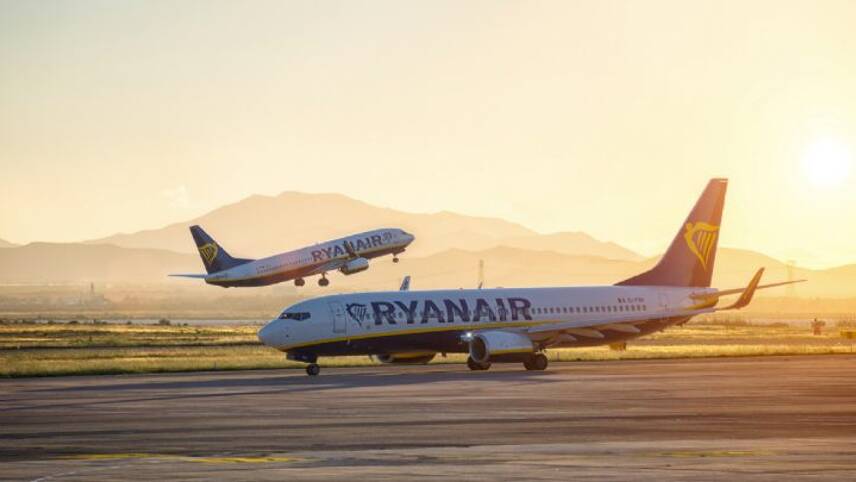Register for free and continue reading
Join our growing army of changemakers and get unlimited access to our premium content

RyanAir sees alternative fuels delivering the biggest portion of the necessary emissions reductions
Released earlier this week, the plan relies on the increased use of sustainable aviation fuels (SAFs) to address 34% of absolute emissions from flights through to 2050.
Ryanair believes that improvements to technologies and operations will cut absolute emissions by a further 32%, with an additional 10% saving to be realized through improvements to Air Traffic Management.
One of the major technological and operational changes will be the replacement of older aircraft with newer models that carry more passengers while consuming less fuel. Ryanair has already committed to purchasing 210 of Boeing’s 737-8200 ‘Gamechanger’ aircraft, to this end.
After action on SAFs, efficiency, technology and Air Traffic Management, this will leave 24% of emissions from flights, which the budget airline will offset.
Ryanair’s sustainability director Thomas Fowler said: “We are working tirelessly with our team and strategic partners to lead the way in making aviation more sustainable.
“We were delighted to be upgraded to a ‘B’ rating by CDP this year, recognising our commitment to reducing our environmental impact. While we’ve already come a long way, we will continue to lead the sustainable aviation agenda in European aviation as we embark on our ambitious Pathway to Net-Zero by 2050.”
Devil in the detail
The plans may seem like welcome news, after Ryanair was accused in 2020 of being one of Europe’s 10 biggest emitters.
But environmental groups have been quick to point out potential loopholes in Ryanair’s strategy.
On SAFs, Ryanair had already committed to meet at least 12.5% of its fuel demand with SAFs by 2030. However, chief executive Michael O’Leary has admitted that it may not be possible to meet this target, as the production of fuels from sources like bio-based feedstocks and waste needs to be dramatically scaled.
The UK Government’s climate advisors, the Climate Change Committee (CCC), believe that, in the most optimistic case scenario, SAFs will be used to meet 7% of the fuel demands of airlines operating in the UK in 2030.
On Air Traffic Management, the delivery of the reduction forecast by Ryanair hinges on the European Commission’s reform of policy in this space.
There is, additionally, no mention of electric, hydrogen and hybrid aircraft in Ryanair’s plans – nor is there any mention of plans to eventually cap passenger numbers.
The CCC has stated that the aviation sector cannot be allowed to grow indefinitely if a net-zero world is to be realised and the worst physical impacts of climate change avoided. Several environmentalists have asked how this is compatible with the fact that Ryanair is launching its largest summer schedule to date from Dublin Airport and Cork Airport this year. Ryanair’s overarching growth targets are to serve 225 million passengers by 2026, up from 150 million in 2019.
Sarah George


Please login or Register to leave a comment.